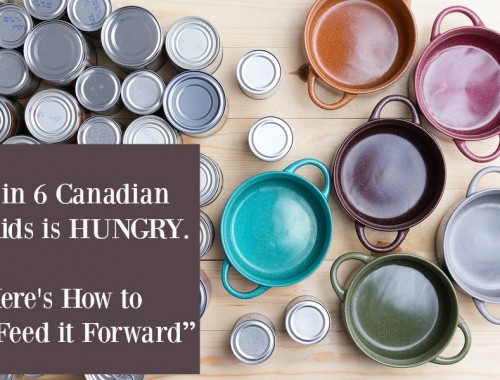In June, there were reports that the H1N1 virus, also known as swine flu, was especially dangerous for pregnant women. The concern is not that pregnant women are more likely to contract this particular strain of the flu, but rather that they are more likely than the average person to have serious complications should they contract H1N1. As a result of this phenomenon, there is a need to vaccinate pregnant women. However, now that the vaccine is soon to be available, there are questions about whether it is safe for pregnant women.
The Dangers of H1N1 for Pregnant Women
The Interior Health Authority here in BC published a full report on “Pregnancy and the H1N1 Flu Virus” on September 18th. The report states that the risk to pregnant women is two-fold. First, pregnant women tend to be relatively young and it has been demonstrated that young people are more susceptible to this strain of the flu because they lack an immunity to it that older individuals likely acquired before younger generations were born. Thus although pregnancy itself does not increase one’s chance of contracting the virus, young women (and men) in general are more likely to contract the illness than older people. The second are of risk is in complications: pregnant women are more likely than the average person to experience serious complications if they are infected with the virus. Complications such as pneumonia, severe respiratory illness, early delivery of the baby and miscarriage were listed in the Interior Health Authority’s report. The report goes on to state that women in the second and third trimester of pregnancy are especially at risk and that this elevated risk for complications continues for the first four weeks after a woman has given birth.
So why are pregnant women more likely to have complications from the virus? According to a CTV article published last June (and the doctors quoted in it) it is primarily because pregnant women have weakened immune systems. A weakened immune system is a natural and necessary component of pregnancy because it reduces the likelihood that the mother’s body will reject the developing fetus. However, a weakened immune system also reduces the body’s ability to fight viruses such as H1N1.
The Public Health Agency of Canada (PHAC) recommends that pregnant women see a doctor to discuss prevention of contracting H1N1 and preparations for contraction to reduce the likelihood of serious complications. Pregnant women should see a doctor immediately if they develop flu-like symptoms. Antivirals can safely be administered to pregnant and breastfeeding women, says the Agency, but need to be administered within 48 hours of the onset of the flu-symptoms so it is important to see a physician quickly.
H1N1 Vaccines for Pregnant Women
According to the Public Health Agency of Canada (PHAC), the World Health Organization (WHO) has strongly recommended that pregnant women get vaccinated against the H1N1 virus and PHAC is also recommending this. However, there have been reports and rumours that the standard vaccine available in Canada is not safe for pregnant women. According to PHAC, the ingredient of concern in the H1N1 vaccine is called an “adjuvant” which “boosts the individual’s response” to the vaccine. Adjuvants are very useful in vaccination and have been present in vaccines for “several decades.” The following is the PHAC statement regarding adjuvants and pregnancy:
“All evidence suggests that adjuvanted vaccines are just as safe as unadjuvanted vaccines; however there is no safety data for the use of adjuvanted vaccine in pregnant women. The WHO’s Strategic Advisory Group of Experts (SAGE) recommended in July that pregnant women should receive non-adjuvanted vaccine where possible, but that an adjuvanted vaccine could be used if necessary.”
As a result of this recommendation, the Canadian government has purchased non-adjuvanated H1N1 vaccines for use in pregnant women and children under 3 years of age. Therefore, if you are pregnant or have a child under the age of 3 and you are interested in getting yourself or your child vaccinated, ask your doctor about the option of the non-adjuvanated H1N1 vaccine.
Do you think you will be getting yourself or anyone in your family vaccinated against H1N1? Let us know in our H1N1 Vaccine poll to the far right of each page of our website.
For more general information about H1N1 please refer to our other articles H1N1 Influenza: What You Need to Know and H1N1: Severity, Vaccines and More News. For more information about H1N1 and the H1N1 vaccine visit the Public Health Agency of Canada’s FAQ about the H1N1 Virus or the British Columbia Ministry of Health’s Vaccine Information Sheet which has been updated as of September 28th.
-Danica Longair



Hello,
Very nice article. Just thought of letting you and everyone know that to carry a pocket size Benefect disinfectant spray where ever you go. I got it from http://www.simplynontoxic.com and found it very useful.
It kills Swine flu or H1N1 virus and is all not toxic and chemicals free. It is multipurpose Disinfectant. I use it as a hand sanitizer as well.
I had my non-adjuvanated h1n1 shot on tues nov 10th, I was 4 1/2 wks pregnant at the time. On wed, i started spotting and on thurs i was heavily bleeding. I have lost my baby approximately 2 days after receiving the vaccine. Not so sure any other pregnant women should receive the vaccine so as not to suffer the loss I have.
To SM — November 16, 2009 @ 11:26 am:
First of all, I am sorry for your loss, but…
I think you are scaremongering and causing unnecessary anxiety for others. Approx. 30 % of all early pregnancies end in miscarriage (I should know, I’ve been there). The fact that you were only 4 1/2 weeks pregnant at the time of vaccination means that the embryo probably failed to even implant in the womb and this is very unlikely to have been caused by the vaccine – just bad luck. Consider yourself lucky that you have been vaccinated (here in the Netherlands I am not eligible until > 12 weeks pregnant)!